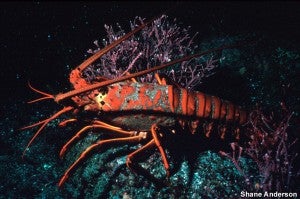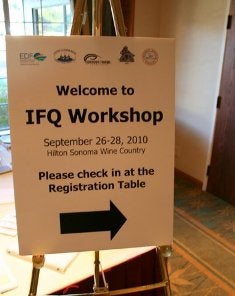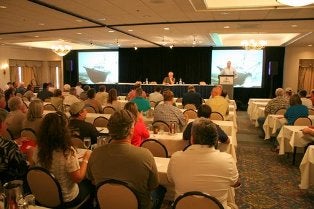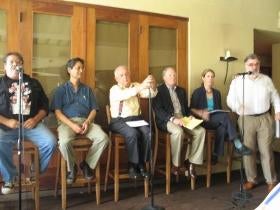Next time you’re lucky enough to crack open a lobster, consider this: you may be doing your part to stimulate California’s economy.

Lobster fishing in California takes place from October to March in Southern California— from Point Conception around Santa Barbara to the Mexican border. Business has been solid in recent years: 728,000 pounds of lobster were landed in the 2008-09 season by the state’s 200-plus commercial lobster fishermen. Sales to local markets, as well as Asia, generated about $8 million in economic activity.
But looming threats exist to lobstermen’s livelihoods. As The San Diego Union Tribune recently reported, “In coming months, state officials plan to expand a set of marine reserves under the Marine Life Protection Act that likely will shut down vast tracts of coastline to lobster fishing, including a prime spot off the coast of La Jolla, that will take away about 20 percent of the state’s lobster catch.”
Protected areas are critical to the state’s fisheries, as they allow species to survive and thrive. In many cases, these protected areas increase the amount of seafood that can eventually be harvested along the coast. At the same time, these protected areas and changing rules mean that fisheries have to update the way that they manage themselves. Scientific monitoring of species and new management techniques are needed to allow both fishermen and the environment to thrive. But then questions arise over how to fund the new science and management reforms in a fragile economy.
This is where the creativity of the lobstermen comes in:
California’s government is cash-strapped and the Department of Fish and Game (DFG), while prioritizing the lobster fishery, doesn’t have the money to advance management reforms. Lobstermen have stepped up with a unique approach that starts to build funding for improvements. They’ve asked the state to form a private-public partnership to create rules that will protect lobster populations while improving the economies of California’s coastal fishing communities.
The California Lobster and Trap Fishermen’s Association, environmentalists and Assemblywoman Lori Saldaña (D-San Diego) have teamed up to propose an annual $300 fee on holders of the state’s 204 lobster fishing permits. This annual fee amounts to about 14 lobsters per fisherman (give or take). Resulting revenues would go directly into a fund to make improvements to the fisheries that fishermen and DFG prioritize. The legislation – AB 408 – has passed the Assembly and is awaiting Senate action.
Lobster fishermen are hoping their offer to fund a piece of what’s needed for better science and management will attract money from other sources such as the state Ocean Protection Council and the California Fisheries Fund (CFF), a philanthropic revolving-loan fund that lends money to fishing communities to improve fishing sustainability. Since CFF makes loans, not grants, it requires borrowers to prove an income stream, which is just what the $300 annual fee would help create.
As we’ve argued in EDF’s California Dream 2.0 blog, California can lead the way with new approaches to protect the environment while growing our economy. AB 408 is such a ‘win-win’ idea, empowering lobstermen to improve the marine environment while improving their industry’s bottom line. Lobstermen won’t be able to fund the necessary improvements alone, but their willingness to put skin in the game will encourage other funders to see this industry offer for what it is: a sustainable way to manage its lobster fishery, help fishing communities thrive and protect the ocean.




 It isn’t often that a neighborhood restaurant wades into complex policy discussions about fisheries management, so kudos to Bob Klein of the traditional Italian restaurant
It isn’t often that a neighborhood restaurant wades into complex policy discussions about fisheries management, so kudos to Bob Klein of the traditional Italian restaurant